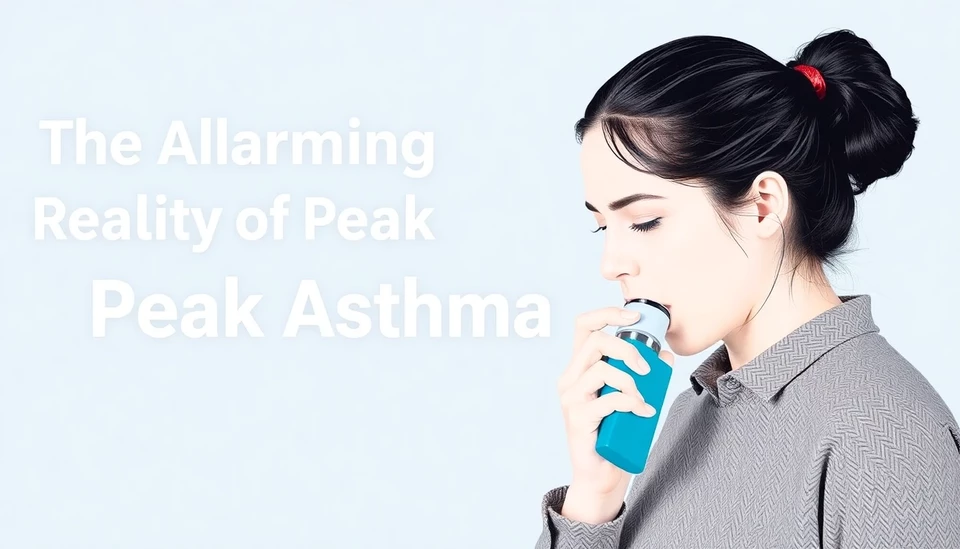
As cold weather closes in and the autumn months bring on the peak asthma season, an unexpected consequence emerges: a significant rise in the use of inhalers. This uptick in inhaler usage not only highlights the struggles of asthma sufferers but also casts a spotlight on the environmental impact associated with increased emissions from these medical devices.
Reports indicate that many asthma patients rely heavily on their inhalers, particularly during this time of year when allergens like pollen and mold become more prevalent. The changing weather conditions often exacerbate respiratory issues, leading to a surge in the use of bronchodilator inhalers, which are essential for those who experience frequent asthma attacks.
However, this increased reliance on inhalers comes at a cost. The propellants found in many inhalers emit greenhouse gases that contribute to air pollution. Specifically, inhalers that utilize hydrofluorocarbons (HFCs) are particularly problematic. These substances are potent greenhouse gases, and their increased usage during peak asthma seasons significantly elevates their contribution to global warming.
In a recent analysis, experts have noted a direct correlation between the amount of inhalers used during the peak season and the overall increase in emissions. It's estimated that a typical year can see millions of additional inhaler puffs during harsh weather months, and each puff can release a small amount of HFCs into the atmosphere. When scaled up to the population level, this leads to a troubling rise in emissions.
Health advocates are urging for a dual response strategy that addresses both the urgent healthcare needs of asthma patients and the requirement to mitigate environmental impacts. There are calls for more environmentally friendly alternatives to the current inhaler models that rely on HFCs. Transitioning to newer, eco-friendly inhalers could not only help reduce emissions but also maintain accessibility for patients reliant on these critical devices.
As discussions around climate change continue to intensify, the medical community is also looking toward innovation in inhaler technology and better public health strategies to manage asthma more sustainably. By focusing on both patients' health and the health of the planet, we may find a way to manage asthma effectively while reducing our carbon footprint.
In conclusion, the peak asthma season is not just a critical time for healthcare; it also poses significant challenges for environmental health. As communities prepare for the colder months, the intertwining issues of respiratory health and climate change will need to be addressed more thoroughly to ensure a healthier future for all.
#Asthma #Health #ClimateChange #EcoFriendly #Inhalers #AirPollution #GreenhouseGases
Author: Sophie Bennett




